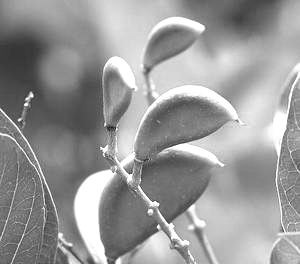Queensland continues to push the boundaries in biofuel production with a focus on jet fuels.
The Australia-based University of Queensland has announced its researchers have planted 5 hectares (12.36 acres) of pongamia trees at Hope Vale in northern Queensland.
The project aims to create a commercially viable plantation for sustainable regional development and biofuel production in northern Australia. In conjunction with traditional land owners and partners, the university’s ARC Centre of Excellence for Integrative Legume Research is planning to plant an additional 3,000 hectares (7,413 acres) within the next three years. The resulting oil could be used as feedstock to produce an estimated 10 to 15 million liters (2.64 to 3.96 million gallons) of biofuel.
According to Peter Gresshoff , CILR director, professor and project leader, the 5 hectares of pongamia planted to date will be used to evaluate environmental issues, such as pest load, wind effects, rain during harvesting period, tree management and superior tree genetics selection.
Activities related to growth analysis, life-cycle analysis, seed oil and protein analysis, and nitrogen fixation will also be carried out. “We are currently seeking external funding to increase the plantation size for commercial production and in-depth research at different tropic sites in the Cape York Peninsula,” he said.
Gresshoff said that pongamia trees are expected to yield approximately 3 to 5 metric tons of oil per hectare per year. That equates to approximately 363 to 612 gallons per acre on an annual basis. The oil has been shown to be a good feedstock for both biodiesel and biobased jet fuels, he continued. Oil produced through the trails will be converted into biodiesel as part of the proof of concept.
Regarding acres that have already been planted, Gresshoff said the researchers used trees of putative superior parentage. “There are no ‘varieties’ of pongamias yet, as the tree is genetically outbreeding, thus each seed is genetically different,” he said. “However, using DNA fingerprinting using ISSR markers we have determined that offspring from several elite trees, featuring desirable production traits, are highly related. We also have the ability to produce clonal material using rooted cutting, grafts and tissue-culture plantlet.”
According to Gresshoff, there are several advantages of using pongamia oil as a feedstock for biofuel production. It is a nonfood feedstock, he said. It is also native to several regions of the world, including Florida, Hawaii and Georgia in the U.S. “It is very tolerant to environmental stress assuming the summer is long enough and the winters are not colder than minus 5 degrees Celsius (23 degrees Fahrenheit),” he said.
Article : Biodiesel Magazine
By Erin Voegele | May 04, 2012
